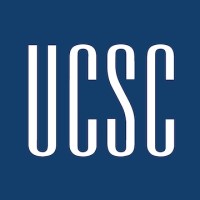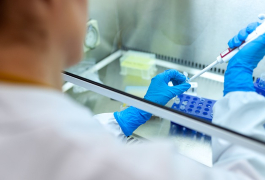Bachelor of Science in Biomolecular Engineering and Bioinformatics (Bachelors)
UC Santa Cruz
Santa Cruz, CA
The biomolecular engineering and bioinformatics major includes the biomolecular engineering (BME) and bioinformatics (BINF) concentrations. The BME concentration is designed for students interested in protein engineering, stem cell engineering, and synthetic biology. The emphasis is on designing biomolecules (DNA, RNA, proteins) and cells for particular functions, and the underlying sciences are biochemistry and cell biology.
The BINF concentration combines mathematics, science, and engineering to explore and understand biological data from high-throughput experiments, such as genome sequencing, gene-expression chips, and proteomics experiments. The program builds upon the research and academic strengths of the faculty in the Biomolecular Engineering Department.
In both concentrations, students participate in a capstone experience. Options for the senior capstone experience include
✔ Senior Design — a three-quarter group project intended to prepare students for work in industry,
✔ iGEM -- a three-quarter, team-oriented, synthetic biology project (including summer, based on the international iGEM competition,
✔ a three-quarter Senior thesis,
✔ or an Advanced bioinformatics course series. The last option is the required capstone for students participating in the bioinformatics concentrations.
All capstone options involve working closely with faculty and other researchers at UCSC, analyzing ideas, developing technologies, and discovering new approaches. Application areas include biomolecular sensors and systems, nano-electronic implants, assistive technologies for the elderly and disabled, bioinformatics, microfluidics, nanoscale biotechnology, environmental monitoring, and other areas at the junction between engineering and the life sciences.
More information about bioengineering research and undergraduate research opportunities can be found at Undergraduate Research Opportunities, the Genomics Institute, the Program in Biomedical Sciences and Engineering, the STEM Maximizing Access to Research Careers (MARC) program, and the STEM diversity programs.
The program has course requirements in mathematics, science, and engineering. Students interested in Biomolecular Engineering and Bioinformatics as a major should contact the Baskin Engineering advising office (bsoeadvising@ucsc.edu) before enrolling in any courses at UCSC. Early advising is particularly important before choosing calculus and physics courses.
Biomolecular engineering and bioinformatics students may continue their research and studies at UCSC in any of several graduate programs. Information may be found at the Division of Graduate Studies website.
The immense growth of biological information stored in computerized databases has led to a critical need for people who can understand the languages, tools, and techniques of statistics, science, and engineering. A classically trained scientist may be unfamiliar with the statistical and algorithmic knowledge required in this field. A classically trained engineer may be unfamiliar with the chemistry and biology required in the field. Thus, this major strives for a balance of the two: an engineer focused on the problems of the underlying science or, conversely, a scientist focused on the use of engineering tools for analysis and discovery.
Program Learning Outcomes
A biomolecular engineering and bioinformatics student completing the program should:
✔ Have a broad knowledge of science and engineering disciplines including biology, chemistry, mathematics, statistics, and computer science; those completing the BINF concentration will also have a detailed knowledge of mathematics, statistics, and computer science; and, those completing the BME concentration will have broader knowledge in biology and chemistry;
✔ Be able to apply their knowledge to identify, formulate, and solve engineering design problems;
✔ Be able to write programs in Python;
✔ Be able to find and use information from a variety of sources, including books, journal articles, online encyclopedias, and manufacturer data sheets;
✔ Be able to design and conduct experiments, as well as to analyze and interpret data;
✔ Be able to work effectively with partners and on teams;
✔ Be able to communicate problems, experiments, and design solutions in writing, orally, and as posters; and
✔ Be able to apply ethical reasoning to make decisions about engineering methods and solutions in a global, economic, environmental, and societal context.







